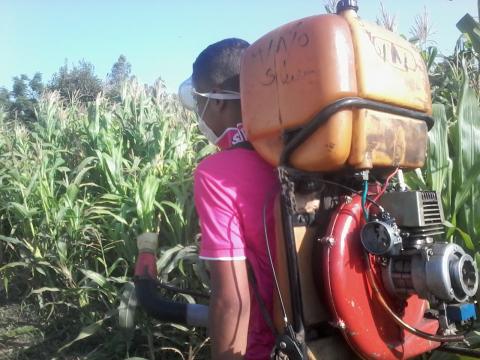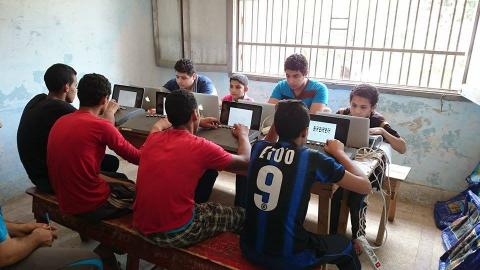
Assessing Vulnerability of the Adolescent Brain to Organophosphorus Pesticides
Background
Organophosphorus (OP) pesticides are used extensively in agriculture throughout the world. There is compelling evidence that repeated (chronic) low-level occupational and environmental pesticide exposures are associated with neurobehavioral performance deficits in adults. Adolescents working in agriculture are exposed to the same risks as adults but it is unknown whether their risk is equivalent to or greater than that of adults. Experimental animal studies indicate that the developing brain is more susceptible to the neurotoxic effects of OPs than the adult brain, and low-level exposures to OP pesticides cause significant neurobehavioral deficits in animal research.
Adolesecents ages 15 to 18 in Egypt are legally hired as seasonal workers to apply pesticides to the cotton crop. The pesticide application to the cotton crop is highly regulated and standardized across Egypt, and is limited primarily to OP pesticides and pyrethrins, generally chlorpyrifos. This provides a unique opportunity to examine the impact of a highly consistent known OP pesticide exposure on the adolescent and their developing nervous system.
Recent research in this adolescent Egyptian population found increased reports of symptoms, depressed cholinesterase, and extensive neurobehavioral deficits in adolescents applying chlorpyrifos versus controls. While we have preliminary evidence of some of the highest reported exposure concentrations from dermal patch and urinary samples in adult Egyptian applicators, there is no quantitative exposure data available in adolescents. Furthermore, what is not established is if these exposure-related nervous system effects accumulate across time, if the effects increase with repeated exposure, and if they reverse after exposure ends.
Study Aims
Aim 1 (Longitudinal Study): Examine the dose-related response of the adolescent nervous system to OP pesticides, to determine if repeated exposures produce a progressive deficit, and to determine if this deficit is reversible.
Aim 2 (Capacity Building): Expand the research capacity at Menoufia University by administering videoconferences on topics that will build research skills (i.e. grant writing), mentoring post-graduate students and faculty, and supporting research through a pilot grant program.
Aim 3 (Intervention Study): Develop a training program for Ministry of Agriculture workers (including applicators) on ways to reduce exposure to OP pesticides through hygiene practices and use of protective equipment, addressing both environmental (at home) and occupational exposures. Evaluate the impact of the training program on reaction, knowledge, behavior, and results utilizing a randomized controlled trial design.
For more information about this project, please see the menu to the left. Applicants to the Pilot Grant Program, click here.

